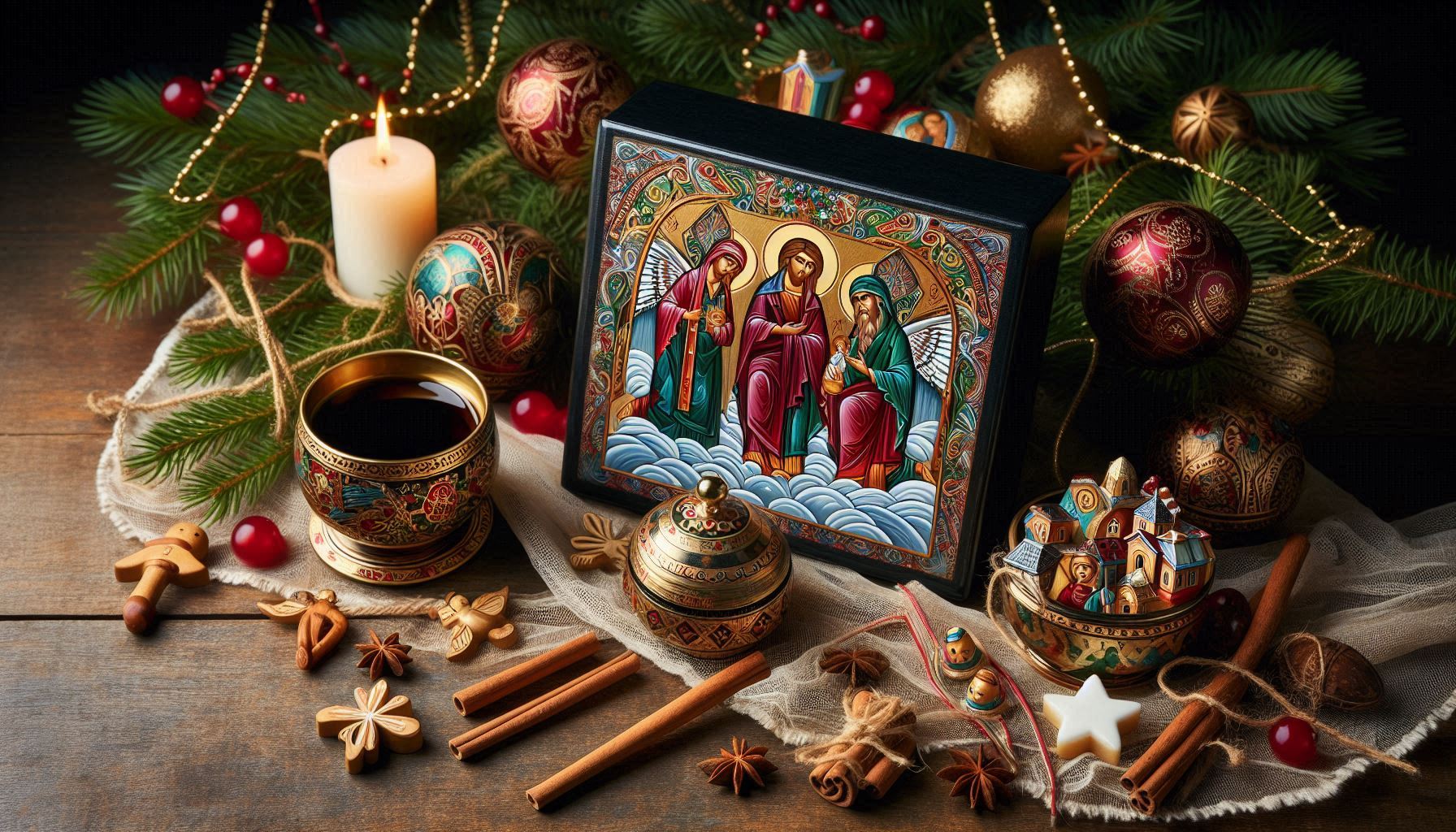Important 5 Meaningful Ways Orthodox Christmas Day Celebrates Tradition, Faith, and Joy
Orthodox Christmas Day: A Celebration of Faith and Tradition
Most 5 Meaningful Ways Orthodox Christmas Day Celebrates Tradition, Faith, and Joy: Orthodox Christmas Day is celebrated on January 7th by millions of Christians around the world who follow the Eastern Orthodox Church. While many Christian denominations celebrate Christmas on December 25th, the Eastern Orthodox Church uses the Julian calendar rather than the Gregorian calendar, which leads to the later date for Christmas. This day marks the birth of Jesus Christ, celebrated with deep reverence, joy, and rich traditions.
History and Significance of Orthodox Christmas Day
Orthodox Christians believe that Christmas is the culmination of the divine plan for the salvation of humanity. On January 7th, the Orthodox Church commemorates the birth of Christ in Bethlehem, marking the moment when God incarnated as a human being. The birth of Christ is seen as a great act of humility, where the Creator entered into the world in the most modest of settings, not as a king but as a humble child in a manger.
The celebration of Orthodox Christmas is rooted in the early Christian church and has remained largely unchanged over centuries, with liturgies and customs that reflect the Orthodox faith’s reverence for Christ’s birth. The date of January 7th is significant because it corresponds to December 25th on the Julian calendar, which was in use when the Christian church was first established.
How Orthodox Christmas Day Is Celebrated
Orthodox Christmas is celebrated with various customs, church services, and family gatherings that reflect the church’s rich spiritual and cultural heritage. While traditions can vary from country to country, there are several key ways Orthodox Christians celebrate this holy day:
- Divine Liturgy and Church Services: One of the most important aspects of Orthodox Christmas is the Divine Liturgy, a special church service that includes hymns, prayers, and scripture readings celebrating the birth of Christ. In many Orthodox traditions, the church is decorated with candles, flowers, and icons, creating a solemn and joyous atmosphere.
- The Christmas Fast: Leading up to Orthodox Christmas, many Christians observe a period of fasting known as the Nativity Fast, which lasts for 40 days. This fast, similar to Lent, is a time of spiritual preparation, reflection, and repentance. On Christmas Eve, the fast is broken with a festive meal.
- Christmas Eve Traditions: Orthodox Christians celebrate Christmas Eve with special rituals and meals. For example, many families prepare a meal known as the Holy Supper (or Vigil Supper), which typically includes twelve dishes to represent the twelve apostles. The meal is vegetarian in nature, symbolizing spiritual purification before the feast of Christ’s birth. The food often includes grains, vegetables, nuts, and fruit.
- Midnight Divine Liturgy: On Christmas Eve, many Orthodox Christians attend a midnight Divine Liturgy or Vigil. The service often includes the reading of the Nativity story from the Bible and is followed by the singing of hymns celebrating the birth of Christ. The midnight service is a powerful moment of spiritual reflection and communal worship.
- Blessing of Homes and Family Gatherings: On Christmas Day, Orthodox Christians often gather with family and friends to celebrate the birth of Christ. Some families will invite a priest to their home for the blessing of the house, where prayers are offered for the well-being and prosperity of the family in the coming year. The atmosphere is filled with joy, gratitude, and celebration.
- The Christmas Feast: After attending church services, Orthodox Christians enjoy a festive Christmas feast. This meal is a joyous occasion that features a variety of traditional dishes. In some regions, dishes like baklava, stuffed cabbage, roast meats, and special bread are served. In the Russian Orthodox tradition, it is common to enjoy kutya (a sweet wheat or rice dish) as part of the meal.
- Caroling and Nativity Plays: In many Orthodox countries, children go caroling or perform Nativity plays to reenact the birth of Christ. This tradition is common in Eastern Europe, Greece, and the Middle East, where groups of children visit homes, singing hymns and spreading Christmas cheer.
Key Traditions in Various Orthodox Countries
The way Orthodox Christmas is celebrated varies across different countries, each adding its unique cultural flavor to the occasion:
- Russia: In Russia, Christmas is a deeply spiritual occasion. Families prepare for Christmas by attending church services, and on Christmas Eve, they enjoy a meal of twelve dishes to symbolize the twelve apostles. Many Russian Orthodox Christians attend the All-Night Vigil on Christmas Eve, and the following day is spent with family, feasting, and giving gifts.
- Greece: In Greece, Christmas is celebrated with a combination of religious devotion and family warmth. One notable tradition is the carol singing and the blessing of the Christmas bread, known as Christopsomo. Families also decorate their homes with a wooden boat rather than a Christmas tree, reflecting Greece’s long maritime history.
- Serbia: In Serbia, Orthodox Christians celebrate Christmas with great festivity, and there is a focus on family unity and hospitality. One special custom is the cutting of the badnjak, a special tree branch, which is burned in the hearth on Christmas Eve. This symbolizes the warmth of Christ entering the home. The following day, families enjoy a festive meal together.
- Ethiopia: Ethiopian Orthodox Christians celebrate Christmas, known as Genna, with early morning church services and a festive meal that includes doro wat (spicy chicken stew). It is a deeply spiritual holiday marked by fasting and prayer leading up to the feast.
- Jerusalem: In the Orthodox Church in Jerusalem, Christmas is celebrated with a grand procession to the Church of the Nativity in Bethlehem. This sacred journey holds deep spiritual significance for Orthodox Christians, as it connects them to the birthplace of Christ.
Theological Significance of Orthodox Christmas
For Orthodox Christians, Christmas is more than just a festive occasion. It is a day that commemorates the Incarnation of Christ — the moment when God took human form in the person of Jesus Christ. This belief emphasizes the humility of Christ’s birth, and it is a reminder of God’s love and grace toward humanity. It is also a celebration of the hope and salvation that Christ brought into the world.
The Orthodox Church teaches that through the birth of Jesus, the Word of God became flesh, bringing light into the darkness of the world. The feast of Christmas is therefore a profound celebration of the presence of God on Earth and the beginning of the journey toward salvation.
Conclusion: Celebrating the True Spirit of Christmas
Orthodox Christmas Day is a time for spiritual reflection, joy, and community. It reminds Orthodox Christians of the divine love that entered the world through the birth of Christ and invites them to embrace the teachings of humility, peace, and love. The day is celebrated with rich cultural traditions, religious observances, and family gatherings that express the deep faith and devotion of the Orthodox Christian community. Whether through church services, festive meals, or acts of charity, Orthodox Christmas Day is a reminder of the true spirit of Christmas — the birth of Christ, the Savior of the world.


Leave a Reply